#problem child 1990
Text
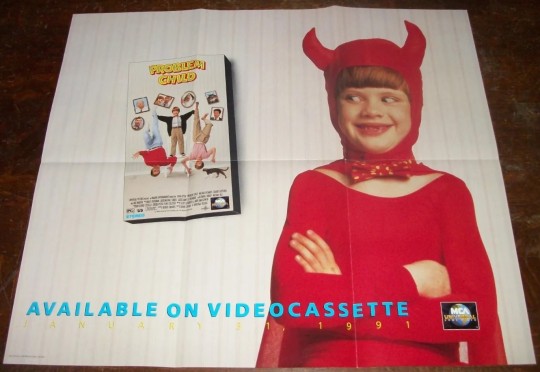
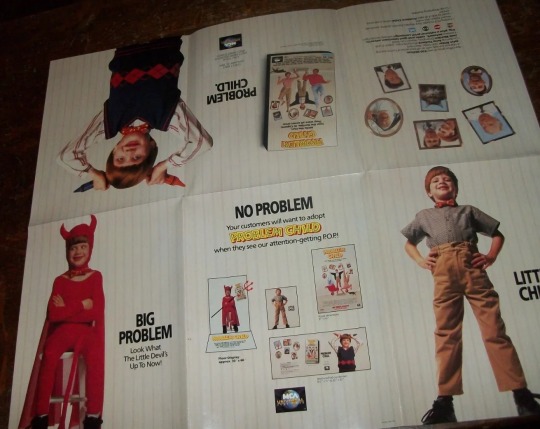
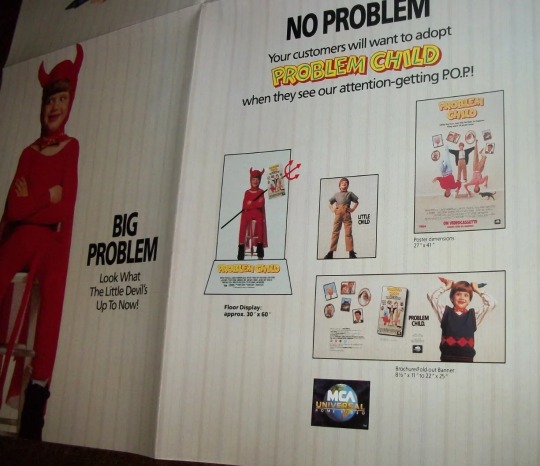
#Problem Child 1990#Problem Child#Dennis Dugan#Scott Alexander#Larry Karaszewski#Michael Oliver#John Ritter#Amy Yasbeck#90s
30 notes
·
View notes
Text
On June 24, 1991, Problem Child debuted in France.

#problem child 1990#problem child#dennis dugan#screwball comedy movie#comedy movies#gilbert gottfried#cult cinema#cult movies#90s movie#screwball comedy movies#black comedy movie#indie movies#indie film#directorial debut#movie art#art#drawing#movie history#pop art#modern art#pop surrealism#portrait#cult film
7 notes
·
View notes
Text


Disney Adventures, January 1991
#Disney Adventures#movies#Bill and Ted#Garfield#Martin SHort#Batman#superhero#home video#Sylvester#Ethan Hawke#Keanu Reeves#Alex Winter#Problem Child#White Fang#cats#1991#1990s#ticket
46 notes
·
View notes
Text

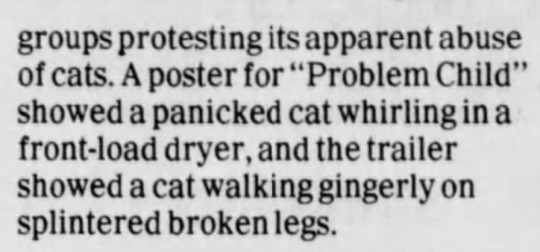




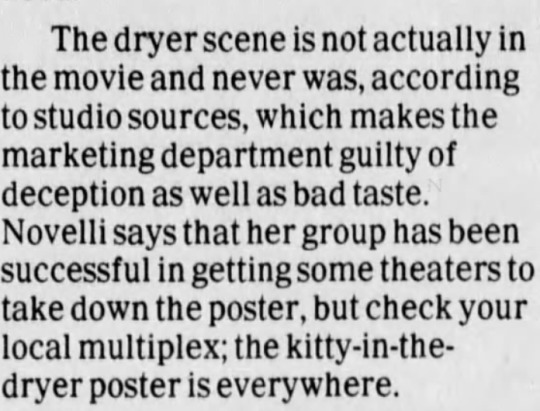
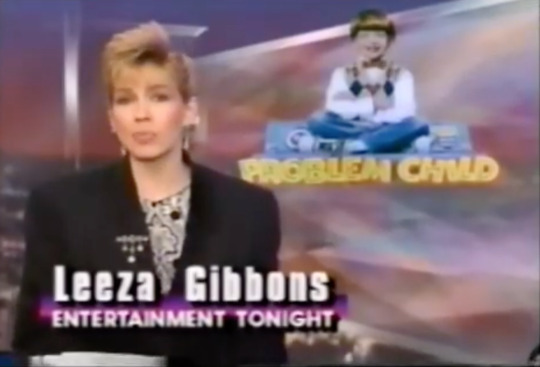




1990.
The Problem Child Protests.
27 notes
·
View notes
Text
Problem Child (1990)

Problem Child is the kind of film that inspires theological discussions. A comedy this unfunny either proves there is a God because Satan exists and releases movies under the guise of Dennis Dugan, or proves there is no God because he would never allow such a calamity to befall his children.
A troublemaker from birth, Junior (Michael Oliver) has been adopted and abandoned more times than anyone could count. When kind-natured Benjamin “Ben�� Healy Jr. (John Ritter) and his socialite wife, Florence “Flo” Healy (Amy Yasbeck) learn they cannot have children, they adopt the boy. Trouble soon ensues.
It should be enough for me to tell you Problem Child isn’t funny but having survived this harrowing experience, I must say more. I must explain WHY it’s so unfunny. I’ll begin with Michael Oliver as Junior. Child actor or not, he’s awful. None of his lines sound credible and he’s completely devoid of charisma. Witnessing him do one awful thing after another to people who don’t deserve it causes you to loathe him only seconds in. You hate his voice, his would-be smart aleck comments, his choices and actions. You even hate his stupid little face. What worse is how the character is handled. Problem Child can’t decide whether we’re supposed to like Junior or not. We’re presumably supposed to laugh at the misfortune he brings others when setting the Healy house aflame, sabotaging a birthday party, luring a bear to a campsite, attacking children with a baseball bat (cue the nut shots), stealing a car, and generally being a rusty, spiral-shaped turd. In the next scene, he overhears someone talking about how awful he is and sad music kicks in. Which one is it?! Am I supposed to sympathize for Junior, or hope his adopted parents go at him with a chainsaw? You can’t have it both ways!
Anyone who gives Junior the moment of day is repulsive by association. John Ritter as the father is an unbearable wet noodle. The film is so mean-spirited you kind of want him to wind up crushed beneath a collapsed building or skewered by a stray harpoon. The idea that, in time, he and Junior will bond makes you want to throw up. Since he makes your blood boil too now, you'd expect to like his harpy of a wife but her character is just as irritating. She wants a kid so she can go to her neighbors’ parties. I’ve been to children’s birthday parties. Unless you’re participating, they suck. Her motivation makes no sense but why should it? Nothing makes sense in this film. Junior’s sending fan letters to serial killer Martin “Bow-Tie Killer” Beck (Michael Richards), who shows up towards the climax as a way to wrap up a plot that’s had no direction previously. Instead of ending in Dugan's signature false sentimentality, maybe there’s some version of the film that ends in a blood bath. Get me that fan cut.
Up until its very last shot, Problem Child single-handedly annihilates the words “classy” and “funny”. The only good thing about this supposed comedy is that eventually, it ends. (On VHS, April 7, 2020)
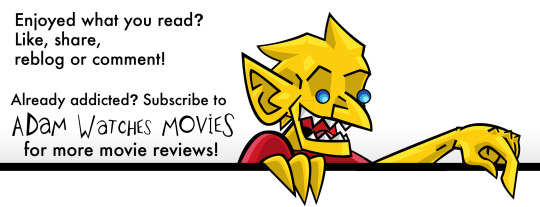
#Problem child#movies#films#movie reviews#film reviews#Dennis Dugan#Scott Alexander#Larry Karascewski#John Ritter#Michael Oliver#Gilbert Gottfried#Amy Tasbeck#Michael Richards#Jack Warden#Peter Jrasik#1990 movies#1990 films
2 notes
·
View notes
Text
.
#I'm just gonna rant about my country for the millionth time#sometimes when I think about it I want to say it's not so bad#I'm lucky enough to be in the capital#but my first semester professor wasn't lying when he said that the cons of studying sociology were living in constant dread#alongside the wish for something we would probably never see#it's not so bad because we're lucky enough to live in the capital#but we know and we have seen what the rural populations go through#we have heard them and it's so frustrating that everything seems like a godforsaken loop#these week the military has spoken about the extrajudicial executions they did between 1990 and 2006#and they are admitting that they killed civillians to raise the numbers on the guerilla fighters killed#these are generals admitting such things and apologizing to the victim's families#but just a week ago there was a massacre of civillians where the army killed 16 people one child and a pregnant woman#and the defense minister had no problem in saying those were necessary losses and congratulating the army for its results#its the same over and over again#why didn't I study accounting?
4 notes
·
View notes
Text
In my list of orphaned projects is a big damn essay on the fertility transition , which I never wrote. I had this in the docket for almost a decade, back when worrying about fertility rates was still a hot take. But alas the ship has sailed, everyone is talking about it now and has written it all out already, and I have mountains of projects, so I will just outline it quickly, sans graphs and footnotes. Maybe doing that will incentivize me to write up a full one someday, and it also gets my cohesive viewpoint out there.
The Future Is Exowombs & the Global Fertility Transition
The Trendline
The fertility transition has long roots - going back to 19th century France, originating in metropoles like Paris and culturally exporting itself to the countryside.
It seems broadly linked to material prosperity in ways that are load-bearing, one implies the other.
It is a 'sticky' cultural transition - once a country begins to move towards lowered TFR it never recovers outside of temporary blips.
It is not related to "western" cultural norms or specific contingencies of religion or ethnicity - those can matter at the margins, but rarely make a huge difference.
Starting in the 1990's, following sharp increases in A: global economic growth and B: global cultural diffusion/global monoculture, a trendline that used to be reserved for wealthy countries has rapidly accelerated, affecting countries at almost every income level. The fertility transition is now fully global.
The Cause
The primary driver of this phenomenon is the positive realization of desires - and by that I mean it is not something forced on people due to a lack in their lives.
It is not primarily caused by growing singleness; the number of people having any kids at all today is lower but overall pretty similar to the number of people who did a hundred years ago. It makes a marginal difference but not a huge one.
It is not linked to money, or housing prices, or other economic issues - fertility rates do not notably change with income levels or other price factors. At the margins, sure, but not at relevant ones.
It is not linked to specific technologies like contraception. People have understood how to prevent pregnancy for centuries - though like many things they do contribute at the margins. Additionally, you can’t uninvent them.
It is by a large majority linked to the death of large families. It was previously common for there to be families with 5 or more children, sometimes way more. 10+ children was not that rare in the past.
These families were disproportionately engaged in agricultural production; cities have always been fertility sinks.
In a world of manual household labor, rural living, low rights for women, low economic opportunities for women, and high death rates for children, these large families made sense. The 'opportunity cost' of the endless pregnancies & sicknesses was low (economically, not gonna handwave the immense personal toll)
All of these reasons have vanished. People want to have families, and love their children. But enduring multiple painful pregnancies, putting your career on hold, and spending huge chunks of your lifespan on child raising no longer tracks. The experience of having ~2 children is superior, along almost every metric, than the experience of having ~5 children for most people. This is what I mean by positive desires - the family structures of the past were built on misery and necessity, and will not return willingly.
The Problem
Many will point to the economic & social consequences of the Fertility Transition. They are very real, particularly at sub-1.0 fertility rates. If you are South Korea today, you have no plan for how your economy will truly support itself 50 years from now - you will vanish as a country in a few generations.
The focus on nearish-term crises also misses the opportunities lost - economic growth is premised on specialization, and specialization is premised on scale. A smaller world is a poorer world per capita, and a less innovative world, problems which have compounding effects. The difference in the long term is orders of magnitude.
But, far more importantly than any of that, is that we are nowhere close to the capacity of the earth to support humans. Supporting double or even triple the current population of the earth is trivial; a 10-fold increase would be quite easy, particularly once innovation is factored in. Being alive is a good of worth incomparable to anything else - the 'future' is literally defined by it. Time only meaningfully passes through the eye of one who can behold it.
The Failed Solutions
Money cannot buy lifespan or reclaim lost time - all attempts to throw money at the problem of fertility can help at the margins, but won't change the fundamentals. Some people want to have 2 kids, but can only afford 1. Or are prioritizing a career, but will work part time to have 3 kids. But the current policy crop of tax benefits or subsidized child care has not found a way to make someone truly want a larger family size, just mitigate gaps between desire and ability - and only barely.
Could radically larger amounts of money solve this problem? A professional career track in giving birth, 100k+ salaries for full-time mothers? I am open to the idea - but society isn't. The fiscal transfers needed are too radical for the current political environment, no one is proposing this.
Immigration was frequently proposed as a stop-gap, but its a 90's idea, premised on the idea that the Fertility Transition was a western problem that other countries did not face. It is not and never was; as every country's fertility declines, immigration becomes a zero-sum solution.
Turning back the clock on cultural change is A: impossible, the material logic of modern industrial production broke the need for it, and culture is downstream of material constraints. And B: its barbaric - if your answer to humanity's obstacles to greater flourishing is to condemn half of it to misery, we are better off dead.
So population levels will either stagnate or decline - unless something intervenes.
The "Future" Aka Getting Rationalist On Main
Exowombs, aka artificial wombs, allow you to grow a human child outside of the need for a person to incubate it. The baby (hah) step they let you do is strongly lower the cost of having a child; this is time & health given back to a mother, it will make having larger families easier.
But that won't fundamentally, shift the reality - that most people only want 1-2 kids, they don't want to raise more than that. However, with exowombs, you don't need to; you can make children outside of a family's desire for one. You can do that pretty trivially, actually. A society, if committed to solving its fertility issues, could mass-produce people with exowombs. Which would be very good to do ethically, because living is good and I personally don't think kids at orphanages should be euthanized to end their suffering, they are fine.
If some society, somewhere, did this, they would rule the world in a few generations. No one else is solving this problem, and meanwhile the human capacity to live on Earth is being woefully underutilized. Before natural human growth would solve this eventually - now it seems that will never happen, so anyone who actively tackles the problem wins. They literally win the future, by being the future.
Now, no one is going to do this soon - proposing this idea is not my point. Exowomb research is harshly regulated or illegal everywhere, modern society hates the idea of this kind of experimentation. We are, in so many ways, allergic to the idea of solving this problem. It doesn't even have to be exowombs, maybe we do the salaried mothers idea. My point is just the illustration - the future where there is 100 billion people dwarfs any current trendline future. That hypothetical dominates the worldline space, because arriving there organically seems to have faded away. The fact that we are not going to take that future, that it is probably gone now, is really, really sad.
But of course there is the other solution, the reactionary specter - instead of the technological solution, we choose the social one, of cultural regression and expanded reproductive control. I am not so worried about this, personally? Because I think it would unsustainable and result in a lot of bleed to liberal societies. It should not be taken lightly though - in a world where everyone has 1.0 fertility, and the social and economic consequences are becoming dire, I wouldn’t discount the willingness for radical solutions. I myself prefer the technologist side. But I think odds are we don't get either, just the long decline.
TL;DR - don’t let the Mormons win. Build exowomb factories.
274 notes
·
View notes
Text
If one subscribes to an ideology that views people with cognitive, psychiatric, and other diagnoses as mostly incompetent, ‘child-like’ and unable to care for themselves or make meaningful decisions about their lives, then an idea such as independent living or living in a non-institutional setting is quite radical, which is why it was, and still is, so ferociously resisted. It may be useful to understand what one means by a ‘dependent population’ that cannot live 'independently,’ which is what many proponents of institutional and group home living say of people with significant disabilities. Two dimensions could be affiliated with the term dependency: first, dependency on the state for financial support, health care, and other provisions; second, perceived inability of people to engage in their own self care without assistance of others (Oliver 1990). Some disabled people seem to fit both definitions.
In everyday usage, dependence implies an inability to care for oneself and thus having to rely on other people’s assistance. Conversely, independence implies not relying on anybody and requiring no assistance, a concept tied to an individualistic ethos (Oliver 1990). Disabled people often embody a different definition of independence, as exemplified in the principles of the Independent Living Movement. Under this framework, independence is perceived as the ability to control one’s life, such as hiring one’s own aides, and deciding on daily routines. It is not understood to mean doing things without any help from others. When analyzing daily living in modern societies, it is hard to find situations in which any people are independent from one another. Thus, projecting dependence as a characteristic only of 'fragile’ members of our societies (i.e., elderly, disabled, and children) may seem natural, but it relies on a specific North American framework of rugged individualism (Ben-Moshe, Nocella, and Withers 2013).
If anything, in many cases it is societal attitudes that create dependence amongst elderly and disabled people. Inaccessibility of the built environment, patronizing attitudes, historical exclusion from schooling and the increasingly fast pace of life in modern societies are all contributing factors to the social construction of disability (Wendell 1996) and dependence (Oliver 1990). Dependence is not inevitable or inherent within these populations. Dependence was prescribed to people with disabilities, and the elderly, so it seems detached from 'normal people’s’ existence (Finkelstein 1993). An additional problem of the creation of forced dependence and infantilization is that it is often 'masked by loving care’ (Hockey and James 1993) of family members or professionals.
Liat Ben-Moshe, “Alternatives to (Disability) Incarceration”, Disability Incarcerated: Imprisonment and Disability in the United States and Canada.
#'dependent' is a political category & value judgement under neoliberal capitalism#for as long as independence is considered a perquisite for personhood - one which disabled/young people will always fail#liat ben-moshe#institutionalization#readings#disabiity#autonomy#ableism
193 notes
·
View notes
Text
Inspired by @chaifootsteps
Everyone's sending in their Hazbin character rewrites, and that looked fun so I want to toss my own hat into the ring. Sorry for the long post. What really bothers me most about Hazin Hotel is that it claims to be a show about redemption, but it seems to be a show about lack of consequence. The reasons why the characters are in hell are never really explained. There are things you can infer about certain people: Alastor's murder, Husk's gambling, Angel's drug use, etc. However, the show never explains why those behaviors are wrong and how they can improve. More often than not, those behaviors are used as jokes. It's funny to have a cannibal town. Angel Dust's name is a pun on the drug that killed him. It's just tonally very wierd to purport that anyone can be redeemed, ANYONE, even people in HELL, can be redeemed and then not continue that very messy and difficult ethical conversation.
Nifty is boy-crazy. Taken to its extreme, what can that mean? What causes attraction so vile it sends you to hell? Was she was one of those "Boy Moms" who excuses his son's horrid actions at the expense of women's safety? Did she cover up a rape her child committed, because Mother's special little boy couldn't possible do something so vile! Or maybe she didn't love her children enough. Maybe her obsession with "bad boys" comes from being forced into an extremely suffocating and unhappy marriage. Maybe she ran off with some 50s biker. Maybe she abandoned her children because she was too obsessed with being loved herself that she couldn't love her children if it meant not having a man's attention. Maybe her boy craziness evolved into a raving jealousy if she didn't get her feelings reciprocated. She's a maid, right? She wants things clean and tidy. Did she murder a man? Did she spend hours scrubbing the floor so none of his blood would remain? Then maybe her arc could be about loving herself and not needing a man to define her identity. Maybe it could be unpacking internalized misogyny and coming to terms with the real pain she caused other women.
Mimzy is opportunistic. She only comes around when she needs a favor. She has no loyalty and only uses Alastor to get her out of problems. Why is she like that? Who taught her that relationships were transactional instead of committal? Maybe she was once a naive young girl who got 'used' for something, and it soured her opinion on other people. I mean, she's plus-sized during the FLAPPER era, where thin was like 1990s level of in. But there's a lot of plus-sized women who talk about being some guy's sneaky link, because he wants to prey on her insecurity and get her into bed, but then never be seen with her, because she's not a socially acceptable dating option. Did Mimzy get her heart broken, and now she doesn't trust anyone? Now she just uses people for what they're good for, because hurt people hurt people, and she's continuing a cycle she herself was a victim to? Maybe Mimzy's redemption could be about letting people in, about not letting trauma turn her into a bad person.
Husk is an alcoholic and a gambling addict. Most people don't just pick up those hobbies for the fun of it. Husk is a miserable little man, and he was probably driven to drink because of his own unhappiness. He was pansexual in the 1970s, right? Maybe he couldn't accept himself or he was forced to not accept himself. Maybe he was forced into a loveless marriage, and he started to go out to the casino to get away from the wife and family he never wanted. But more and more and more he spends time over there, because he doesn't want to go home. And soon he becomes dependent on booze and gambling because it gives him a little joy in his miserable life. But addiction doesn't hurt just the addicted person. It hurts everyone around him. He starts skipping work to gamble. He loses his job. He steals money from his wife. He bets the car. Then the house. He leaves his family destitute, and he's convinced he's the victim because he never wanted to be a husband and father in the first place. When he dies of alcohol poisoning, his family doesn't even claim his body. His redemption could be about how when your own life sucks, it's not an excuse to hurt others. You have to find better ways to cope with a bad hand.
Angel Dust is too many things. He's a prostitute and a porn star and a gay man in the 30s and a gangster and a drug-addict. But if we were gonna try and make all of that make sense, Angel Dust is very family-oriented. He grew up in a mob family. Loyalty is EVERYTHING. So in his mind, killing people was a lesser sin than "betraying" his family by not getting rid of their enemies. His family is everything to him. So he can't be gay. He can't. He can't. He's SO repressed. He refuses to acknowledge it. He spends his entire, short life, trying to fit the mold of a perfect, loyal son. But… he did kill a LOT of people… So when he dies in some shoot out, he goes to hell, and he snaps. He did EVERYTHING he thought was right. He did everything his family told him to do. He was the perfect son, and when he dies he gets sent to hell. He immediately loses all inhibition. He's still a sex/drug addict, but only after he winds up in hell. He's going to spend eternity giving into every single base desire he denied himself while alive. It's destroying him. He's selling himself to men, but deep down he's still ashamed and wondering what his family would think. He drowns out those thoughts with more sex and drugs. Angel's redemption arc is about balance. Yes, he should have been able to be true to himself while alive, but complete indulgence is just as hurtful to him as complete denial.
Sir Pentious… why is he even in hell? I mean, he's a little annoying, and in the pilot he was involved in a gang war, but what did he do in life to justify being sent to hell? Well, he was a Victorian Englishman, so I'm gonna say racism! Horrible racism and colonialsim. He was raised in a time where those were the dominant thought patterns, and he did not analyze them one bit. Conflict can come when black-coded characters like Alastor and Husk expect to be treated like human beings. And Charlie has to face the difficulty of believing a person can change, but how to deal with the current harm they're causing the people she cares about. Maybe Sir Pentious isn't a recorring cast member. Maybe he came to the hotel because he thinks he should be in Heaven. He brought glory to the British empire. He was a kind gentleman. He donated to charities. But he leaves the hotel because he doesn't think "those people" are good enough for Heaven. He refuses to acknowledge his behavior as needing to be changed, but Charlie tells him there is a spot at the hotel when he's ready to change. His character is about how you can lead a horse to water, but you can't make it drink. He can be offered all the chances in the world to be better, but until he can come to terms with his own capacity for evil, he can't be redeemed.
Cherry Bomb doesn't exist, because she's a superfluous character that doesn't fit in my rewrite. Sir Pentious doesn't get a love interest, and Angel Dust's friend is now Vaggie.
No fallen angel crud. Vaggie was a prostitute that got murdered like Viv originally planned for her to be like 10 years ago. I think Vaggie shows some really codependent traits in the show. Charlie seems to be her entire world. She sings about being her armor. She's willing to put herself in harm's way to defend her, even die for her. She doesn't seem to care much about the other patron's of the hotel apart from them being facet's of Charlie's dream. Maybe Vaggie was one of those poor women who gets trafficked by their boyfriend (or maybe girlfriend in her case). A single person becomes her whole entire world, and she's willing to do ANYTHING for them. Even put herself in dangerous situations that lead to her death… But she did it for love! <3 She hurts herself for love.. for approval. And maybe the show can get into a conversation about what sin really is. So many people define sin as harmed caused to others, but what about harm caused to yourself? Viv originally stated that Vaggie's feelings for Charlie were one-sided, and I think that detail would be even more poignant in this interpretation of her character. She's trying so hard to be noticed and to be loved, and Charlie's become a goddess in her eyes. She puts her on such a pedastal she has no room for her own worth. Her arc is maybe a bit too similiar to Nifty's depending on how we choose to interpret her character, but it's also about finding identity outside of others and being able to set boundaries. Because loving someone and wanting to help them and wanting to protect them are not bad impulses, but like anything else, when taken to extremes it becomes something bad. Dependency can twist love into obession.
Lucifer is the Devil! He's evil! No sad-man, Dad-trying-his-best nonsense! He's evil! The big twist of Hazbin Hotel is that they're not in Hell! They're in Purgatory. There are no sins that cannot be forgiven, but sin can also not enter the Kingdom of Heaven. Purgatory is a place where your sins are burned away so that eventually you can join God in heaven. In Purgatorio, Dante depicts Purgatory as a place of effort. People are in constantly motion striving to get closer to heaven. Purgatory in Hazbin could be a place where people get a second chance to work on their vices. If they couldn't be a good person in life, then they have all of eternity to try again. But Lucifer, the prince of LIES, has convinced everyone they're in Hell. There is no redemption. There is no getting better. He causes the sinners to fall into a great despair. Why try getting better if there is no hope? So when people learn they're in hell, they dig in their heels. They lean even further into vice. They cannot experience love or laughter or joy again. So they settle for booze and sex and violence, anything to numb the pain of knowing they're trapped forever. But is a hell of their own making, little do they know. By tricking generations of sinners, not a single soul has redeemed itself and gotten to heaven in centuries. That's why no one believes it's possible. That's why when Charlie suggests it, he's furiously disapproving of her. He doesn't want people to get better. He doesn't want to improve. He wants everyone to be as miserable as he is, because misery loves company. But he can't tip his hat too much or the older souls might get suspicious. He is the Prince of Lies. His power comes not from strength but from manipulation. The greatest trick the Devil ever pulled was convincing the world he didn't exist. In Hazin, the greatest trick he ever pulled was convincing people there's no hope for themselves. I was once told that Judas's great sin was not betraying Jesus, but his own suicide after falling into despair. How glorious it would have been to go to a church named after Judas the Repentent. But alas, it is not so. The greatest sin you can commit against yourself is thinking you're too far gone.
And that's why I think Alastor is the central sinner to the narrative. Because he shares Lucifer's viewpoint. People can't get better. Nothing ever gets better. People are bad or people are good, and you can't be both. And who could blame him for having that idea? Let's just pretend that Alastor's lack of visual black-coding is because he is a VERY white-passing creole man. And because of that, he was treated so differently than his mother. And he was treated differently when people found out about his heritage. He became a big radio host. He was popular. He was famous. But he wasn't seen as an equal human being. He was a performer to be enjoyed, but never a person to be respected. He was "one of the good ones" at BEST. And he believed in the good of people. His mother was such a kind soul. She instilled in him that everyone has good inside of them. So he waited to see it. He waited and he waited, and he only saw increasing racism and violence towards his people. One day he just snaps and kills someone, and he considers it a justice. People like that are never going to change. The world is better without them. So he just keeps murdering racists until he gets shot in the head. And when he finds himself in hell, he believes even LESS in the good of people or God or heaven or whatever. If killing racists sent him to hell, then God is evil, and the idea of objective morality in and of itself is perposterous. Positioning Alastor as a vigilante killer would also make some of his comic depictions make more sense. Like he's a really nice guy to Rosie and other women, but he's also a violent murderous man. It's because he thinks people are good or bad, and if you're bad it justifies whatever he does to you. The cannibalism might also be like a power thing. Alastor's arc is about believing in Charlie's mission, genuinely. Eventually, it's not about watching people stumble and fall, because there's a cosmic humor to the cruelty of the universe. He starts to genuinely see people improve, but he fights against the idea, because his life was defined by static, perpetual, instituional evil. Maybe a soul gets redeemed before his very eyes, and he still doesn't believe it. Because to admit a human's capacity for moral growth is to completely restructure his entire understanding of the world, and that's scary.
Finally, Charlie. Princess of Hell. I've always been rather fond of Tolkien's sentiment that evil cannot create, only corrupt. So I don't think Lucifer is her real father. I think Charlie was like… a baby angel. And when Lucifer was leading his rebellion he stole children and forced them to fall to hell with him. It was just another way to bring misery, forcing the innocent to share the burden of his punishment. I think he got a sick pleasure from raising her. He "loved" her, or at least she thought he did. He was very, very good as playing Father. Prince of Lies and all that. He gets a chuckle knowing she's so happy here rotting in hell and has no idea what she's missing from her true destiny in Heaven. But that goodness inside of her can't be extinguished. She's an angel. She has a natural instinct to help human souls and fight evil. But because she was raised in Hell, she doesn't understand the complexities of sin that the elder angels would have informed her about. She's naive, and she certainly has to learn how to help guide people towards a brighter path, but she doesn't change her stance. So many times characters who believe in the good of people end stories with some pessimistic maturity where they realize that some people can't be helped. But Charlie doesn't change. Charlie stands firm at the end of the series believing that EVERYONE can be redeemed. It won't be easy, and you could argue it's not even fair, but she believes it. Lucifer chastises her, saying it'll take an eternity to change a sinner's mind, but she just smiles. Because an eternity is what she has, and she'll spend it helping people.
Also Chalastor is canon.
#hazbin hotel critical#hazbin hotel critique#hazin hotel rewrite#adam and lute don't exist because heaven is actually good in this rewrite#also the vees might exist but definitely not in the form they do now#the extermination is done by lucifer and the other demons#they get their kicks watching sinners scream and run and beg for their afterlives#it also causes a false sense of scarcity which makes them act even worse to each other
45 notes
·
View notes
Text
𝙻𝚘𝚝𝚝𝚒𝚎 𝙼𝚊𝚝𝚝𝚑𝚎𝚠𝚜 𝙷𝚎𝚊𝚍𝚌𝚊𝚗𝚘𝚗𝚜 ('𝟿𝟼)
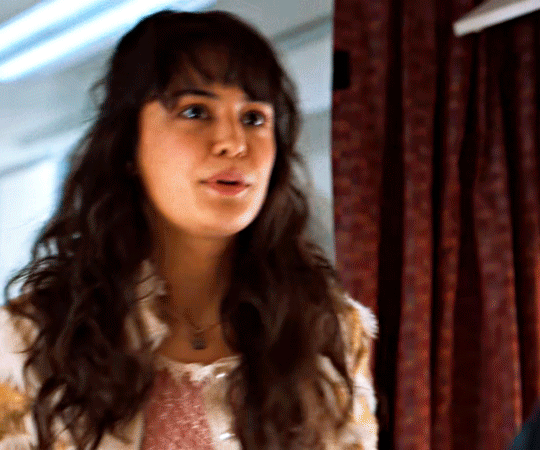
Note: Sorry for being away for so long, depression came and kicked my fat ass this month. Chapter 4 of Certain Hunger is coming out September 25 so watch out for that, and i hope you like these headcannons! Comment your own and reblog if you like!

𝙶𝚎𝚗𝚎𝚛𝚊𝚕 𝙻𝚘𝚝𝚝𝚒𝚎 𝙷𝚎𝚊𝚍𝚌𝚊𝚗𝚘𝚗𝚜
♡ Lottie is a Pieces Sun and Libra Rising
♡ Lottie’s favorite color is Purple, Royal purple, to be specific.
♡ Lottie is a cat person through and through. She likes to be very gentle with animals and take things at their speed. If they didn’t want affection, that was okay, they will eventually want something, and Lottie will just be content.
Lottie's spirit Animal is the Bear.
♡ Lottie, for sure, had a pet cat that was her best friend as a child. Her mother wasn’t emotionally available, and her father thought throwing money at problems would fix them. Lottie grew up believing she was messed up and wished she could just be how her parents wanted her, but she never really understood what was wrong with her.
♡ Lottie is a Extervert. She loves connecting with people and talking in general. She is the type of person who always makes little friends in public places. It could be an old lady, a frat dude, or a little girl. It doesn’t matter because she is now their friend, and they are talking.
♡ Lottie likes spicy food a lot, and she would be the person to proudly eat chili without flinching infront of people.
♡ Lottie’s favorite food is a Spicy King Crab roll and Miso Soup from her hometown Japanese restaurant. She likes to add wasabi to all her sushi, even the Californian roll.
♡ Lottie's childhood was not horrible, but it was very lonely. Lottie had all the toys, Nannies, and friends to fill her time. She never went without, and she never really had to worry about her basic needs not getting met. But her mother was emotionally absent because her father was a very intense control freak about how the family should be. Her dad came from money, and her mother did not, and she was the collateral damage of two different philosophies about raising kids. She didn't get any reassurance, and she was seen as messed up in some way. If she wasn't perfect or had opinions against her father, he would throw her mental disorder in her face. Lottie loves her parents and will follow what they say to the word, but she holds so much resentment towards them.
♡ Laura Lee, Taissa, and Van are her closest friends on the team. In high school, Van, Tai, and Lottie always sat together in classes and at lunch. They were their own cliche in the team, and Laura Lee was the innocent add-on they all had a soft spot for.
�� Lottie's sex drive is pretty normal, it isn't all that crazy. Lottie likes to have sex 1 or 2 times a week, and she likes to have wholesome intimacy in between. Lottie is a Switch! in her normal setting, but she does lead towards Top! most of the time.
♡ I think Lottie’s main vice that she uses at a party, which might be crazy but hear me out, is cocaine. I believe this because she is 1. a girl from NEW money 2. It’s an upper drug 3. It’s the fucking 1990s.
♡ ⚠️Unpopular opinion⚠️ I think that Lottie is not ashamed of being rich and taking her father’s money. It’s the culture of her family and their upper-class peers. She is thrilled that she doesn’t have to work or struggle, and she grows to learn that it is a profound privilege never to have to work or struggle in her early adulthood or ever really.
𝙳𝚒𝚏𝚏𝚎𝚛𝚎𝚗𝚝 𝙰𝚄s/𝚄𝚗𝚒𝚟𝚎𝚛𝚜𝚎s
♡ Royalty AU! Lottie Matthews would be a Merlin or Head Mage of the castle. I can see Lottie playing some kind of magical role in a fantasy setting and that she would be someone who is seen as crazy still because I feel like it is core to Lottie’s character. She would give you healing potions, and she would give you a protective rune for your armor or a necklace for your journey. She would be watching out for you through a looking glass.
♡ Delinquent AU! Lottie is a hardcore shoplifter who got busted for stealing $670 worth of clothes from the mall. She was arrested, her parents paid her bail, and she kept doing it. It gives Lottie feelings that she usually has numbed through her many medications and uses Shoplifting to thrill her in her watered-down, milquetoast privileged life.
♡ Supernatural AU! Lottie is a forest witch for the reasons above in the Royalty AU.
♡ Superhero/Marvel AU! Spiderman. No other words.
♡ College AU! Lottie would be a pothead in college and would get into spirituality. I think in every timeline, Lottie gives off goop vibes and would become some kind of spiritual influencer. She would be on Witchtok for sure. Lottie would change majors a lot. I see English, Communications, French, and even a try in Gender studies. She will eventually drop out because she has her dad’s money to fall back on.
𝙿𝚛𝚎-𝙲𝚛𝚊𝚜𝚑 𝙷𝚎𝚊𝚍𝚌𝚊𝚗𝚘𝚗𝚜
♡ Lottie would be the one to tell you that she likes you first, and she would be very blunt about it. Lottie wants to take bandaids off as quickly as possible, so when she has feelings, she just wants to shoot her shot and lick her wounds as quickly as possible.
♡ Lottie is a firm believer in retail therapy. Lottie has always really liked to go shopping and go to the mall. She likes to try on clothes and make you try on different looks. Want to try goth, preppy, sporty, chic? She would never be shy to buy you some things on her dad’s credit card.
♡ Lottie likes to take you out on dates to restaurants and lovely places like ballets and theatres. I see Lottie taking you out for a good dinner and going off to see the Nutcracker with hot chocolates around Christmas time.
♡ Lottie is the more anxious partner in the relationship. She will call you and try to talk when you are away from her. She wants to ensure you are always okay and doesn’t like her favorite person being away from her.
𝚆𝚒𝚕𝚍𝚎𝚛𝚗𝚎𝚜𝚜 𝙷𝚎𝚊𝚍𝚌𝚊𝚗𝚘𝚗𝚜
♡ Lottie leans on you for support when she runs out of her medication. She entirely relies on you to tell her what reality is anymore because she can’t tell with her chemicals being misplaced. Her delusions become very real, the voices seem more real and responsible, and she doesn’t trust herself. Even with her connection to It, Lottie doesn’t trust her perception of anything. She doesn’t ask you about things most of the time.
♡ Lottie always tells you about her dreams at night, how they happened, and the surreal plots of her mind, and she wants to know yours. She grows to believe that everyone’s dreams tell you something that could bring the Yellowjackets more food and breaks from the wilderness. A deer must be nearby if you see a deer in a dream. If there was a conflict with people or the girls on camp in a dream, that indicates there must be some bad times coming your way (small or big could cast lives)
♡ Lottie cuddles with you all the time in the wilderness for warmth. Lottie is always cold, even in the summer. She likes to have you physically near her to feel your heat. She is very physically affectionate out in the wilderness.
♡ Lottie gets jealous quickly, even before the crash, by giving something or someone more attention than you give her. She doesn’t like it. If you are hanging out with your friends on camp, Lottie will wander into the conversation seamlessly. But if you are getting flirted with, or she perceives someone is flirting with you, she goes a little crazy. She gets confrontational, and she becomes somewhat aggressive in her words, but she always comes to her senses and apologies.
♡ Lottie has more sexual desire now in the wilderness, and the freedom of being in love with you makes her want to have sex anytime you move. In the wilderness, Lottie develops a primal kink and a breeding kink out there and begs to get you pregnant (which can't happen).

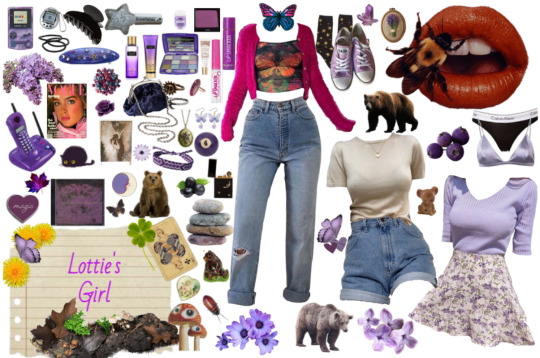
#yellowjackets x reader#yellowjackets#lesbian#lottie matthews#lottie matthews x reader#lottie matthews x you#Lottie matthews fluff#Lottie Matthews headcanons
114 notes
·
View notes
Text

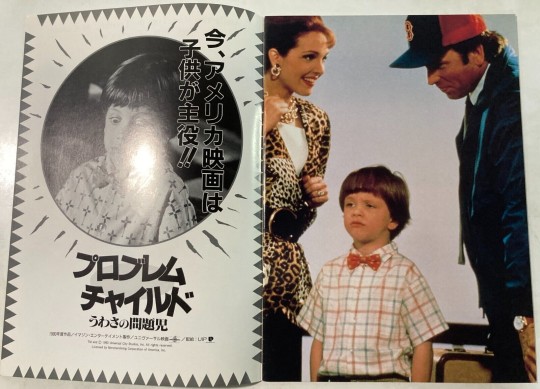
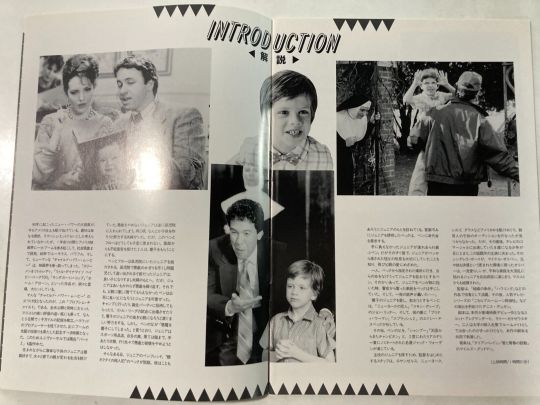


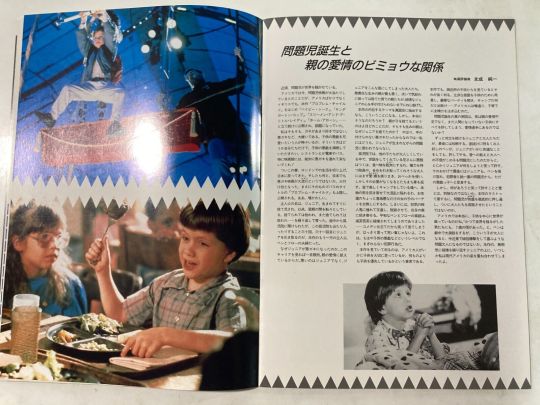

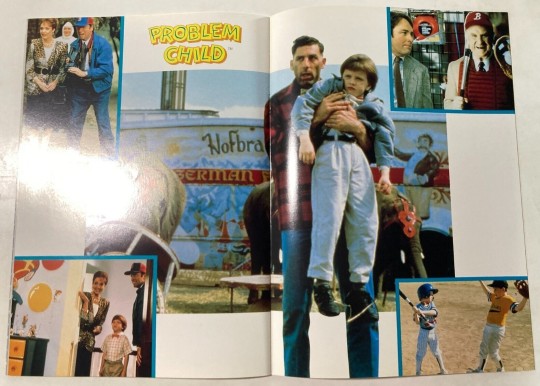


#Problem Child 1990#Problem Child#Michael Oliver#John Ritter#Jack Warden#Gilbert Gottfried#Amy Yasbeck#Michael Richards#Dennis Dugan#Scott Alexander#Larry Karaszewski#90s
24 notes
·
View notes
Text
On December 21, 1990 Problem Child debuted in Brazil.

#problem child#problem child 1990#dennis dugan#comedy film#comedy movies#gilbert gottfried#screwball comedy movies#screwball comedy movie#screwball comedy#independent film#indie film#movie art#art#drawing#movie history#pop art#modern art#pop surrealism#cult movies#portrait#cult film#samuel l. jackson
2 notes
·
View notes
Text
Just had a really weird job interview that actually made me think about my childhood…(I said I was independent and resourceful and was asked to provide examples)
My dad bought me my first car, but as soon as I had my drivers license, he told me I was grounded until I knew how to change a tire and change my own oil. I was grounded for about a week. The only help he gave me was showing me where the owners manual was and a few forums about my specific model of car.
My dad, while I was getting my permit to drive, required that I drive him up to the local Indian reservation for casino night (he would keep $150 in his right pocket and as soon he was out he would leave, he kept the winnings in his left pocket and as soon as he was $300 up we would leave) also he tried to teach his most mathematicalally challenged child how to count cards at black jack? Not a successful enterprise. I barely passed high school chemistry.
When I was twelve there was a cross continent moving situation that required my dad and I to move ahead of my mom and middle sister (this is the time he lit the stove on fire from trying to fry bacon…) after the stove incident, he dug out the recipe cards his mother had made for my mom when they got married, shoved them at me, along with the cordless 1990’s phone and said “I’ve dialed your Aunt Rock, (his older sister) Daddy wants biscuits and gravy, make her walk you through it.”
That’s how I learned to cook; having my aunt on speed dial and I would tell her what was in the cabinets, she would make a list for me to give to dad, and then she would walk me through the recipe. As I cooked it.
As a teenager, my dad knew that I was capable of cooking exactly what he wanted (IE exactly what his mom and big sis cooked while he was growing up) and as an adult I’ve had to actually learn to enjoy cooking as an actual experience and process and not just “what I was told”
When I was 21 my dad spent about $700 on brand new parts for a car I owned that was falling apart…I spent my 21st birthday drinking beer on my dad’s driveway tearing apart my van to replace rotors and brakes, while my boyfriend at the time and dad sat back and did nothing while calling me a great little grease monkey.
Honestly, I’m still not sure if I’m proud or humiliated by that, but the grease monkey comment came from the bf and he didn’t last much longer…
I don’t know. Obviously I didn’t make myself quite this vulnerable when I was in the actual interview, but it feels good to be vulnerable after the fact?
I just feel like my dad gave me a lot of tools to figure shit out for myself, and being resourceful is actually a really great quality. Feeling? Idk.
Being resourceful gives you independence.
Because any problems that come up? There’s either a YouTube tutorial, a blog, or SOMETHING available as a resource. And if you’re out of internet service???? There’s literally a book in your glove compartment somewhere telling you what to do.
#humans are space orcs#independent action#be your own Prince Charming#he’s stuck in a tree go rescue him#my dad is a hot mess#no idea how to cook#it’s okay he’s got three daughters.two sisters.and a wife#what kind of engineer needs to distract himself like that
167 notes
·
View notes
Photo
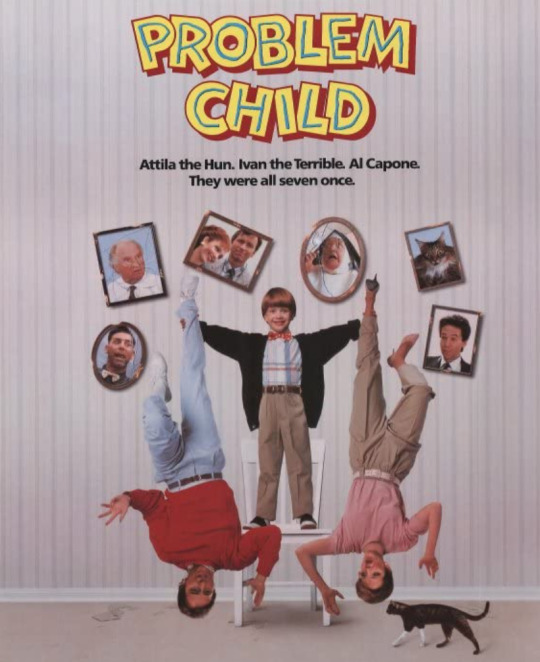

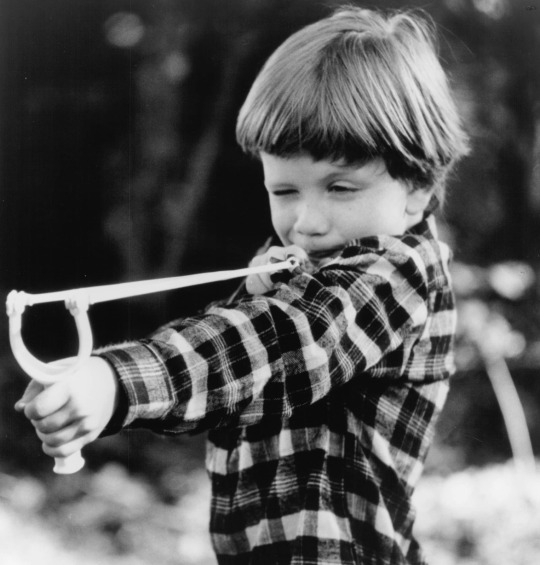
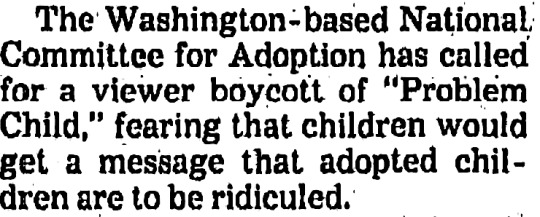
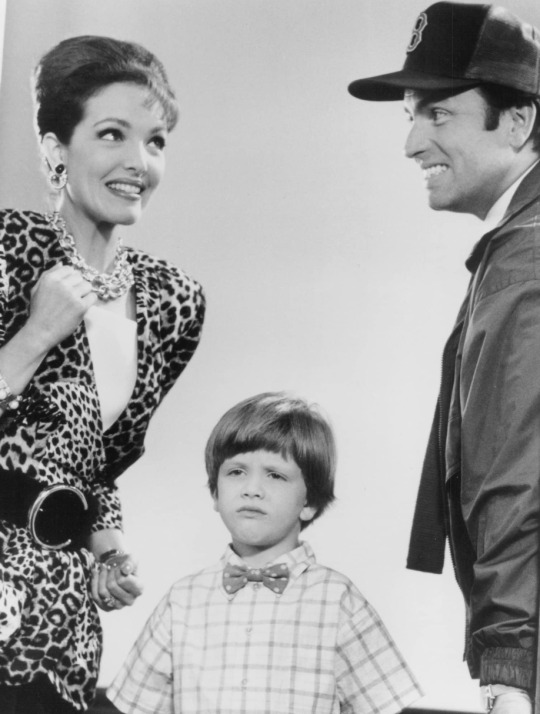
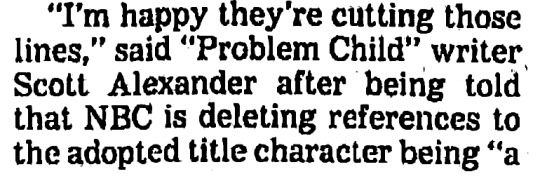
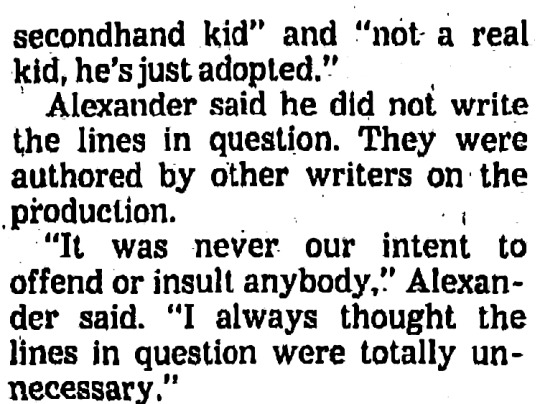
ABC Television cut a line from Problem Child (1990) when they aired the film. Scott Alexander, cowriter of the film, was glad to see them cut the line.
30 notes
·
View notes
Text
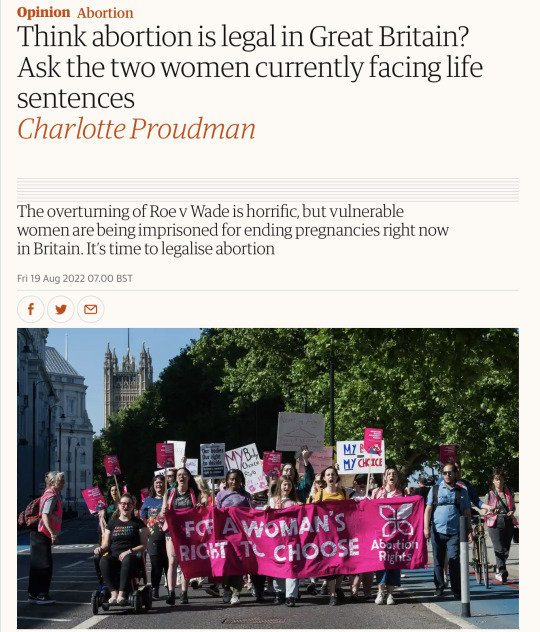
Like many people in Britain, you probably watched with horror the US supreme court’s reversal of Roe v Wade, thinking, “Thank goodness women could never be prosecuted for having an abortion here.”
But let me tell you, it already happens here.
Two women are currently awaiting criminal trial in England for abortion-related offences, both facing charges that carry a maximum sentence of life. At least 17 women have been investigated by police over the past eight years for having had abortions.
In Oxford, a 25-year-old mother of one is facing trial for allegedly taking the drug misoprostol – one of the two pills routinely prescribed by doctors to abort a pregnancy. But her baby was born alive and she was subsequently reported to the police. She is being charged under the Offences Against the Person Act, a law passed by parliament in 1861, before the invention of the lightbulb and before women had the right to vote. The law states that a woman must be “kept in penal servitude for life” if she procures an abortion.
Another woman is facing trial after she took abortion pills she obtained from the British Pregnancy Advisory Service (BPAS) by post when rules were relaxed during the pandemic to allow this. She was allegedly 28 weeks pregnant at the time and is facing charges of “child destruction” (note the visceral language) under the Infant Life (Preservation) Act from 1929, which also comes with a maximum life sentence. She could spend the rest of her life in prison.
We so often think that the 1967 Abortion Act legalised abortion. But it did no such thing. It partially decriminalised abortion in England, Scotland and Wales, so long as strict conditions were in place, such as a confirmation from two medical practitioners that the pregnancy had not exceeded 28 weeks (subsequently reduced to 24 weeks in 1990), or that the termination was necessary to prevent injury or mental harm. Any abortion outside these criteria is still a criminal offence.
We know that it is overwhelmingly vulnerable women who are investigated and prosecuted for having abortions. One woman collapsed in the dock when she was sentenced to two and a half years in 2015 for taking tablets she had bought online to induce a miscarriage after the 24-week period of gestation. The court heard that she had “a history of emotional and psychological problems”.
Another woman, a mother of one, ordered pills online to induce an abortion in 2019 after her abusive boyfriend had told her not to go to the doctor. She had believed she was eight to 10 weeks pregnant but after a traumatic miscarriage in her bath tub, where she has described sitting in an inch of blood, she realised her pregnancy had been much further along. She was arrested in her hospital bed and served two years in prison.
These are just some examples of women who have faced trial: there are multiple other women who face gruelling police investigations. In 2021, a 15-year-old girl was investigated for a year after suffering an unexplained stillbirth. Her phone and laptop were confiscated during her GCSE exams, she was self-harming, and the investigation only ended after a coroner concluded that the pregnancy ended due to natural causes. Another woman was arrested in hospital last year and kept in a prison cell for 36 hours after a stillbirth at 24 weeks, and is now suffering PTSD. My question is this: if a woman has had an abortion late in the gestation period, or a traumatic miscarriage or stillbirth, should she go to prison or should she be offered support from medical practitioners at what is clearly a horrendous time, both mentally and physically?
Women in 2022 are being shackled by a 160-year-old law made at a time when we were not even allowed to set foot in the House of Commons. Urgent reform is needed to protect more women from harm, which is why organisations such as BPAS and the Royal College of Obstetricians and Gynaecologists (RCOG) are calling on the director of public prosecutions for England and Wales, Max Hill QC, to drop all charges against these women. The RCOG this month has gone further, calling on ministers to finally legalise abortion. There is absolutely no public interest in sending vulnerable women to prison for terminating pregnancies. Instead, these prosecutions will only serve to put off women seeking help from doctors because they might get arrested, pushing more women into unsafe and underground options.
Meanwhile, according to the criteria of the Abortion Act, a woman has to show that she would suffer grave permanent injury to her mental health if she did not have an abortion after 24 weeks. Why should women still have to pathologise themselves as mad, hysterical, unfit or suffering to legally access healthcare?
The state currently has a triple lock on women’s bodies. By not legalising abortion it has the right to force pregnancy, birth and motherhood upon us. Look to the rules on organ donation: it is illegal to donate people’s organs after they die (however desperately they are needed by people on waiting lists) without their permission. The law at present, which denies women the right to abort a pregnancy on their own terms, is to give us less autonomy than a corpse.
Link | Archived Link
1K notes
·
View notes
Text


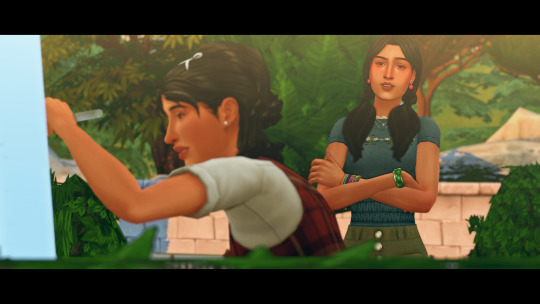

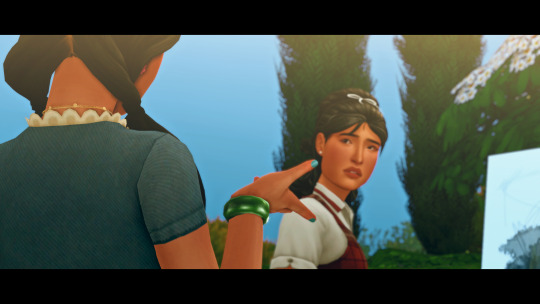
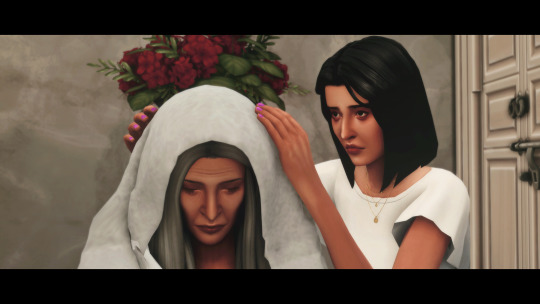

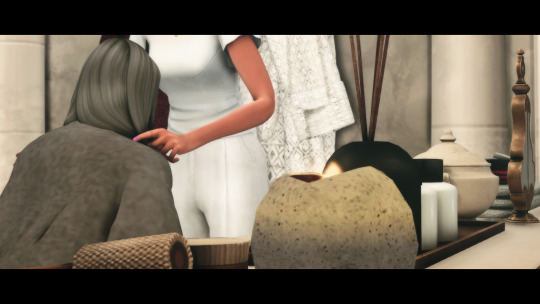
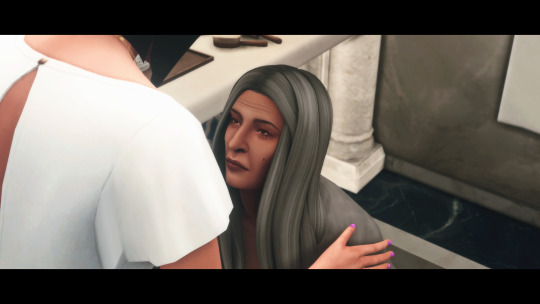
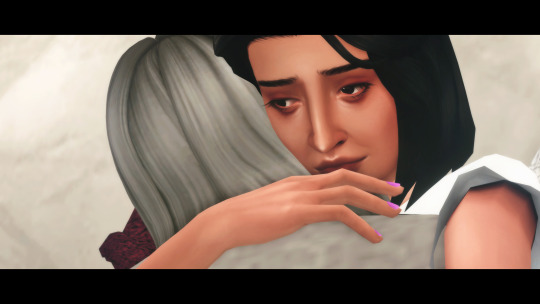
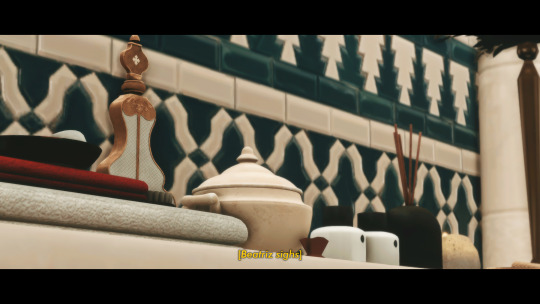
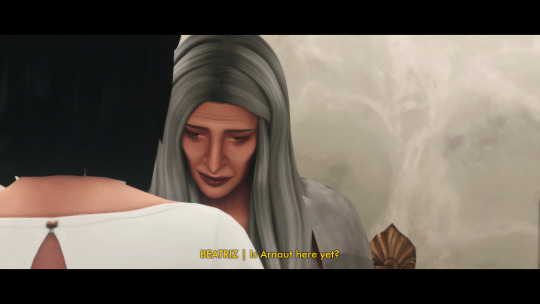
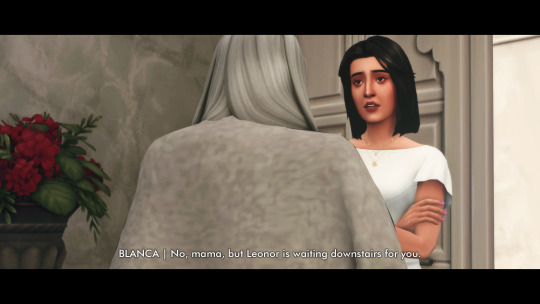


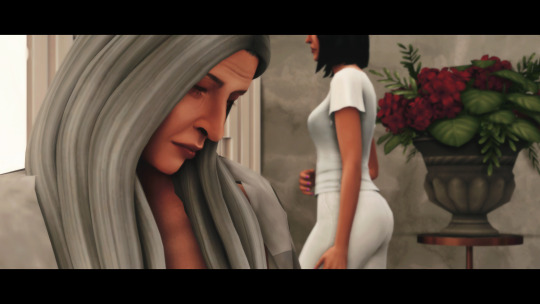
𝐍𝐎. 𝟒 ❛ 𝐠𝐨𝐨𝐝𝐛𝐲𝐞 𝐦𝐚𝐦𝐚 ❜ | NAKAWE PALACE, DEC. 1990
❧ 𝐩𝐫𝐞𝐯𝐢𝐨𝐮𝐬 / 𝐧𝐞𝐱𝐭.
❛ Blanca never compared herself to her sister. Some, many even, would argue that was the problem. Their myriad differences had revealed themselves early on. They bickered and squabbled, not infrequently because Blanca found Safya too willing to forgive her younger sister’s insults. What sort of girl—a teenager, basically an adult—allowed herself to be bullied by an eight year old? Blanca had admired Safya’s virtues but struggled to envy them. Every day, she had walked around vulnerable, earnest, so visibly pure of heart. Safya was soft and gentle. Those traits made it easy to hurt her. Indeed, Blanca found it just as easy to be impatient, to hold grudges, to be selfish. Safya had been their father’s child. In her worst moments, Blanca resigned herself to being their mother’s.
𝐬𝐜𝐞𝐧𝐞 𝐜𝐨𝐧𝐭𝐢𝐧𝐮𝐞𝐝 & 𝐭𝐫𝐚𝐧𝐬𝐜𝐫𝐢𝐩𝐭 ↓
❧ for absolutely no reason, beatriz’s story starts here, if anyone is curious :^)
Like Beatriz, it wasn’t in her nature to be a caregiver—that was why Safya raised her sons, as she would freely admit. Her reaction to the news had nonetheless been rushing to their mother’s side. It was a blessing that she and Ramon were still in Uspana, having just played a show by the ocean when the call came. While Blanca immediately felt alienated from everyone else, it was the deafening silence of their mother’s grief that spoke to her. She never reacted well to commands. She did this time. Beatriz chose to let her in, and Blanca tried to care for her. She folded her bathrobe. She ran her water and scented it with oils. She combed her long, wet hair. She lathered her skin with soap that smelled like rum, oranges, and thirty years of memories.
As she draped a towel over her shoulders, Beatriz stared up at her. No kind or grateful word left her lips. Blanca, nonetheless, saw something in her eyes. It was enough of an invitation that she could gather her into an embrace without worry. She comforted herself, knowing that her mother would have never permitted it had she not wanted it, too.
Still, with a heavy sigh, Beatriz drew away first to ask, “Is Arnaut here?”
Her voice was so small and low. Blanca closed her eyes as she heard it, but Beatriz expected a steady gaze and an immediate answer.
“No mama,” she replied, “But Leonor is waiting downstairs for you.”
It was Beatriz who possessed the steady gaze, although she said nothing in response. Blanca had offered that information in hopes it would console her. Yet, she knew that every minute Arnaut was absent carried more injury. Beatriz’s attitude toward him was inexplicable and always had been. She hounded him for years, then all but banished him from Uspana. She also treated him at times with more tenderness than she did anyone save Safya. They were her “twins,” which everyone knew, even—especially—her lesser children. What Blanca did understand came from her own experience with Beatriz’s love. It was deep as the ocean, but it was just as unknowable, just as perilous.
Gathering her mother wished to be alone, Blanca turned to leave. She imagined she would find Ramon somewhere in the palace and sob into his shoulder. He always accompanied her home without complaint, knowing that she was tethered in ways beyond his comprehension. Yet, she could see the quiet confidence and unshakeable assurance drain from him once they passed any gilded threshold. She would find him later in the kitchen chatting with the cooks or borrowing cigarettes from staffers unloading deliveries by the back porte-cochère. Locating him had never been difficult for her. Even in the early days, she knew he sought refuge in the same places she once had. That didn’t inspire warmth, though. When she interrupted, the unfamiliar staff who knew her only as “my princess” would fall silent, avert their eyes, hurriedly resume tasks even if they were on a break. Ramon was one of them, but she only pretended to be.
She was grateful that he had seen through her all those years ago and never looked away.
Craving Ramon’s attention and care reminded her of another shame. Despite her best efforts, she hoped Damian and Julian would not seek her out for the same comfort. It wasn’t that she didn’t miss them. Invariably, when the music quieted and the distractions ended, she longed for them. Safya had always kept photographs for her in fat manila envelopes; the pictures documented her boys’ lives, but they also showed how integrated into their aunt’s life they had become. Looking at them was bittersweet. ‘Hold onto them for me,’ Blanca would say. ‘I don’t have anywhere to keep them safe right now.’ Who would keep them—the photographs, the two little boys who smiled and laughed in them—now that Safya was gone?
Her thoughts gave way to wordless hurt, but her mother’s voice halted the spiral she had plunged into. Blanca turned back and waited.
“Get rid of that polish on your hands,” Beatriz commanded. No longer small and low, her firm words were harsh. “It’s disrespectful.”
Once the bathroom door closed behind her, Blanca broke into a run through her mother’s chambers. She stopped only when she heard her name again—this time as a pleading chant from a concerned Ramon, waiting for her in one of the concealed servant’s corridors Blanca preferred to take.
TRANSCRIPT
{Gentle water splashes}
{Beatriz sighs}
[BE] Is Arnaut here yet?
[BL] No, mama, but Leonor is waiting downstairs for you.
[BE] Blanca?
[BE] Get rid of that polish on your hands. It's disrespectful.
#ts4 story#sims story#sims 4 story#ts4 royalty#sims 4 royalty#ts4 royal legacy#ts4 royal family#royal sims#simblr#ts4 legacy#1992.story.post#1992.a1#1992.ep01
60 notes
·
View notes